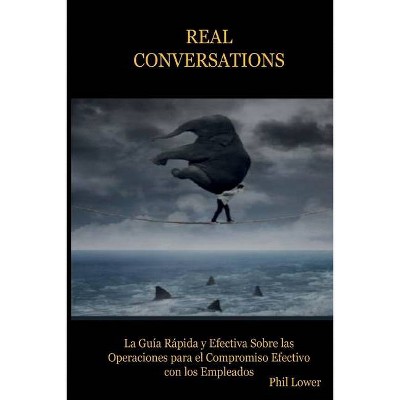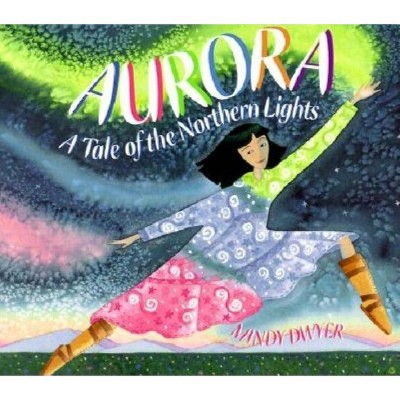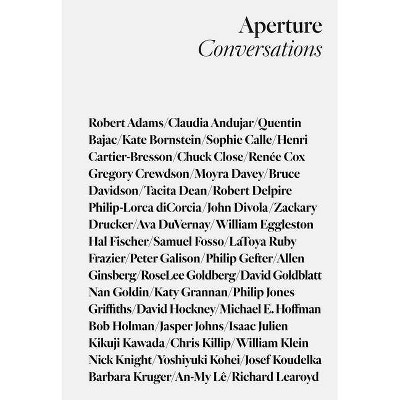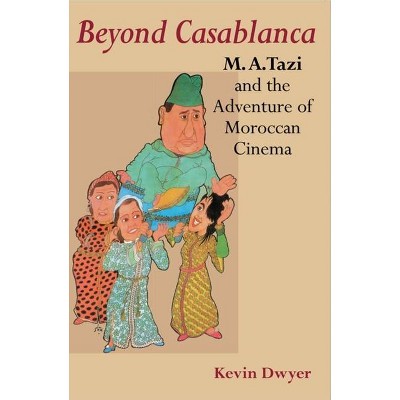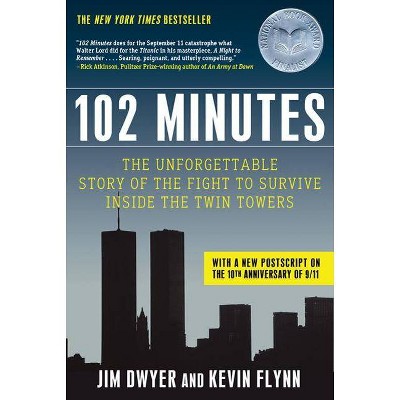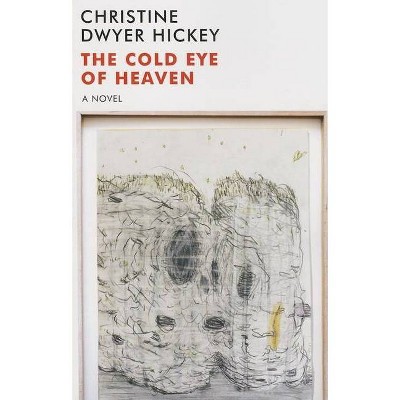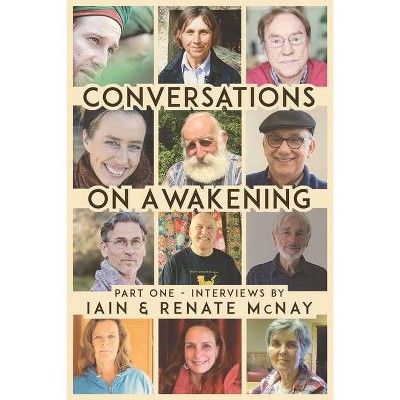Conversations on Dying - by Phil Dwyer (Paperback)
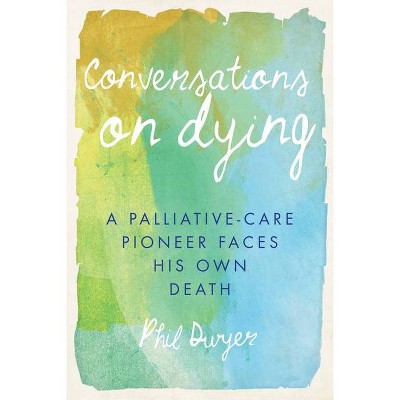
Similar Products
Products of same category from the store
AllProduct info
<p/><br></br><p><b> About the Book </b></p></br></br>Two men face two very different deaths: One, a renowned palliative care doctor, grapples with the reality he helped so many to confront. The other, an ordinary man, faces an ordinary death. <i>Conversations on Dying</i> is a compelling portrayal of two final journeys that challenges you to ask, "What death would I choose?"<p/><br></br><p><b> Book Synopsis </b></p></br></br><b>The story of the end-of-life experience of a palliative care physician who helped thousands of patients to die well.</b><br/><br/> We all die. Most of us spend the majority of our lives ignoring this uncomfortable truth, but Dr. Larry Librach dedicated his life and his career to helping his patients navigate their final journey. Then, in April 2013, Larry was diagnosed with terminal pancreatic cancer.<br/><br/> Unlike the majority of us, Larry knew the death he wanted. He wanted to die at home, surrounded by his family: his wife of forty years, his children, and his grandchildren. He did. He was peaceful and calm at the end. Larry proved that the "good death" isn't a myth. It can be done, and he showed us how.<br/><br/> Ever the teacher, Larry made his last journey a teachable moment on how to die the best death possible, even with a pernicious disease. As hard as it is to guide patients toward dying well, it is far harder to live those precepts day by day as the clock ticks down to one's own death, but Larry, together with author Phil Dwyer, chronicled his final journey with courage and humour.<p/><br></br><p><b> Review Quotes </b></p></br></br><br><i>Conversations on Dying</i> is more than just a compelling read. It is Larry Librach's last great lesson in living--the importance of dying with dignity. Larry's compassion and sense of humor are palpable throughout leaving readers, physicians and patients alike, both the wiser and the more aware. It will cause you to look at end of life care and needs, even if you don't want to.-- "Dr. Marla Shapiro, Medical Consultant, CTV News"<br><br>A conversation worth reading.-- "Journal of Palliative Medicine"<br><br>In <i>Conversations on Dying</i> Phil Dwyer guides us through the death of Dr. Larry Librach and infuses new colour and life into issues of patient centric care and palliative medicine. Both Dwyer and Librach show tremendous courage and generosity throughout the book, inviting us to witness their vulnerability and pain in their own examinations of mortality. Dwyer's narration is equal parts poetic and practical, using the energy of storytelling to offer concrete direction to patients, family members and providers facing life-and-death decisions in contemporary healthcare.-- "Julie Devaney, author of My Leaky Body"<br><br>It might surprise you to discover that a book about death could be so brimming with life. A beautifully hopeful story of love, family and friendship and an undeniable argument for compassion at the end of life.-- "Charlotte Gill, author of Ladykiller"<br><br>It seems strange to call this book rejuvenating, since it peers so intently at mortality. But <i>Conversations on Dying</i> is just that. It reminds us that death is as natural a part of life as is birth, and craves our thoughtful attention. The wisdom contained in these pages is irrefutable, and urges a candid approach to death that eases suffering for the person leaving, and for the loved ones left behind.-- "Kristen den Hartog, author of The Occupied Garden and And Me Among Them"<br><br>Larry proved that the "good death" isn't a myth. It can be done, and in the pages of <i>Conversations on Dying</i> he showed us how.-- "Midwest Book Review"<br><br>Phil Dwyer's Conversations on Dying is at once a testament to the beauty that can be found in the ending of a life and a call for reform in how we as individuals and a society face death.-- "The Lancet Oncology Review"<br><br>What do we talk about when we talk about dying? Usually anything but. For Phil Dwyer and palliative care pioneer Dr. Larry Librach, however, no aspect of the ultimate taboo subject is off limits. Their conversations would be remarkable if they took place at a safe distance from the edge of the abyss; the fact that they unfold as Dr. Librach is in the process of dying and Dwyer is facing up to his own grief deepens the work immeasurably, resulting in a profoundly moving and necessary book.-- "Alissa York, author of Fauna and The Naturalist"<br><p/><br></br><p><b> About the Author </b></p></br></br>Phil Dwyer's journalism, essays, travel writing, and fiction have been published in over fifteen international titles, including <i>The Financial Times</i>, <i>The Times</i> (of London), and the <i>Globe and Mail</i>. He is an alumnus of the Humber School for Writers. He lives in Toronto.
Price History
Price Archive shows prices from various stores, lets you see history and find the cheapest. There is no actual sale on the website. For all support, inquiry and suggestion messages communication@pricearchive.us
